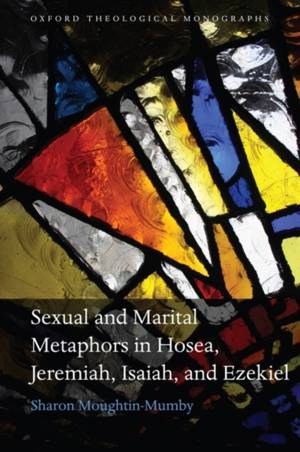
- Afhalen na 1 uur in een winkel met voorraad
- Gratis thuislevering in België vanaf € 30
- Ruim aanbod met 7 miljoen producten
- Afhalen na 1 uur in een winkel met voorraad
- Gratis thuislevering in België vanaf € 30
- Ruim aanbod met 7 miljoen producten
Zoeken
Sexual and Marital Metaphors in Hosea, Jeremiah, Isaiah, and Ezekiel
Sharon Moughtin-Mumby
€ 202,45
+ 404 punten
Omschrijving
Sharon Moughtin-Mumby explores the complex, and potentially subversive, power of metaphor as a tool of persuasion in the prophetic books of the Hebrew Bible. Often, such language is used to speak of the worship of gods other than Yhwh, of undesirable cultic practices, or of political alliances with foreign nations. Evaluating several schools of language and biblical criticism, including a traditional approach, a feminist critique and a literary-historical investigation, Moughtin-Mumby brings lucid new readings with a fresh perspective to these dramatic texts. The study emphasizes the importance of context for understanding metaphorical meaning and challenges previous scholarship which has read such language in terms of the traditional concept of "the marriage metaphor" and the hypothetical background of cultic prostitution.
Specificaties
Betrokkenen
- Auteur(s):
- Uitgeverij:
Inhoud
- Aantal bladzijden:
- 320
- Taal:
- Engels
- Reeks:
Eigenschappen
- Productcode (EAN):
- 9780199239085
- Verschijningsdatum:
- 15/08/2008
- Uitvoering:
- Hardcover
- Formaat:
- Genaaid
- Afmetingen:
- 236 mm x 152 mm
- Gewicht:
- 643 g

Alleen bij Standaard Boekhandel
+ 404 punten op je klantenkaart van Standaard Boekhandel
Beoordelingen
We publiceren alleen reviews die voldoen aan de voorwaarden voor reviews. Bekijk onze voorwaarden voor reviews.











